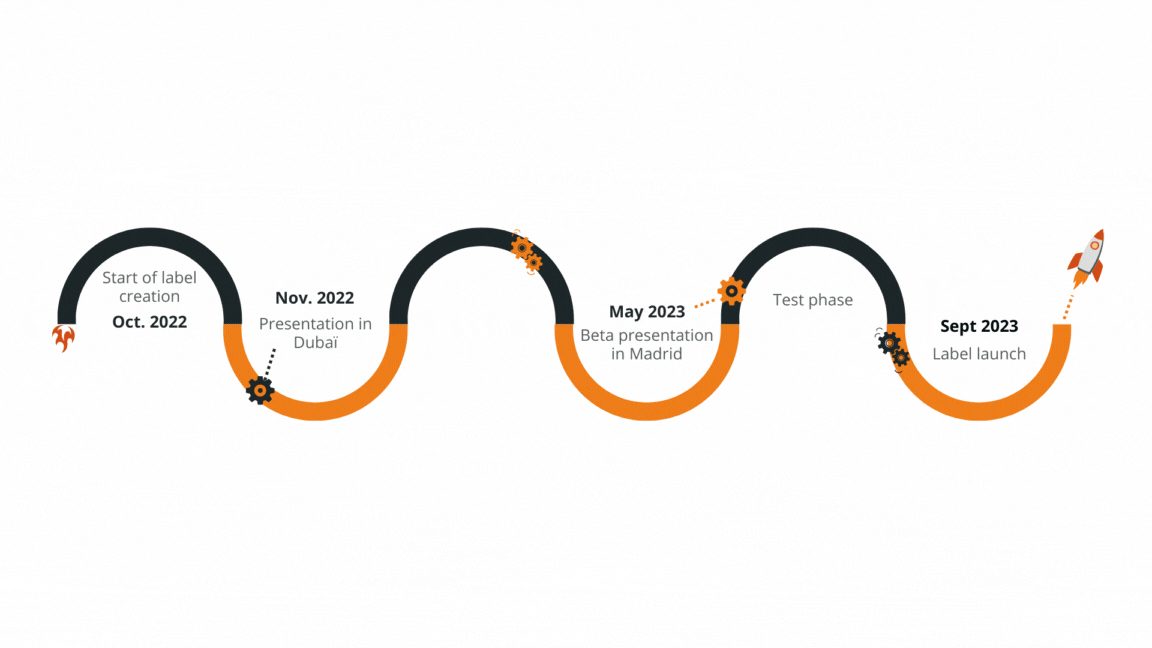03/03/2023
TGS ESG Newsletter 1
Business advisory Social responsibility
At TGS, sustainability is part of our DNA
As ESG issues become increasingly important worldwide, norms and regulations framing sustainability are changing fast.
Those changes can affect our business activities and because we want our commitment to be in the forefront in the consultancy sector, we decided to step further and enhance TGS communication on ESG topics.
The strengthening of the SFRD regulations voted on April 6, 2022, entered into force on January 1
In order to increase investors’ protections and reduce greenwashing, the European Commission is strengthening its action plan with this expanded version of SFRD standards.
These new regulations are intended, as a first step, to better support financial market players by providing more precise details on what needs to be reported, how, when and to whom. They also aim to ensure greater transparency by requiring more information to be reported than in their previous version (March 2021).
The regulations now require financial market participants to publish a separate section on their website by June the 30 of each year. This separate section has to be entitled “Statement on the main negative effects of investment decisions on sustainability factors.”
Indeed, we decided to integrate to TGS’s newsletter an informative press release gathering the most important news surrounding ESG development. This press release is a summary of all the news that held our attention recently.
Our aim is to help you be informed of recent ESG evolutions.
Stronger SFRD regulations voted on April 6, 2022 now in force
In order to increase investors’ protections and reduce greenwashing, the European Commission is strengthening its action plan with this expanded version of SFRD standards.
These new regulations are intended, as a first step, to better support financial market players by providing more precise details on what needs to be reported, how, when and to whom. They also aim to ensure greater transparency by requiring more information to be reported than in their previous version (March 2021).
The regulations now require financial market participants to publish a separate section on their website by June the 30 of each year.
This separate section has to be entitled “Statement on the main negative effects of investment decisions on sustainability factors.”
When NASDAQ deep into ESG issues
In order to upgrade the importance of ESG criteria in assessing the performance of companies, the second US stock market published a complementary file early last week that is supposed to help buyers manage ESG data.
The NASDAQ Purchasing Guide aims to strengthen ESG performance assessment processes by identifying key issues which must be considered when evaluating the purchasing process. This guide (focusing on technology, supplier and business relationship issues) is an update on ESG performance issues related to the purchasing process. It presents additional informations to the general guide to ESG reporting also published by the NASDAQ.
EU: A new draft law to clamp down on greenwashing
The European Commission plans law forcing listed companies to show evidence while claiming carbon neutrality to fight misleading environmental advertisements.
Such a proposal aims to help consumers identify products that are truly environmentally friendly and provide appropriate support to businesses with a real positive impact.
The draft bill seeks to verify allegations by imposing reporting obligations on various companies. Under this law, EU countries will be responsible to ensure that environmental claims are proven using a scientific methodology, such as a ‘product environmental footprint’ framework. In that way, companies will have to back-evidence their statement.
The proposal also states that companies claiming that their product has a positive environmental impact would also have to give information if this causes a negative impact in another area.
The biggest climate law ever
Late in December, the Council of the EU and European Parliament agreed on reforms to its “cap-and-trade” scheme for regulating greenhouse gas emissions. Since then, the reform considered by the European parliamentarian Pieter Liease as “the biggest climate law ever” keeps drawing worldwide attention.
More than the reform’s goals to reach a 62% cut in emissions in sectors covered by the EU Emissions Trading System (ETS) by the end of the decade, what is really disrupting the EU’s Carbon market is the introduction of a new ETS and the creation of a new social fund to protect vulnerable people from rising CO2 costs.
Indeed, the EU intends to introduce by 2027 the ” Emissions Trading System II”. A new ETS which will frame the market for fuel emissions from buildings and road transport. Proceeds from the sale of allowances under ETS II will support a new EU-wide Social Climate Fund made to address social impacts arising from the introduction of the new ETS tool.
The International Labour Organization released a new report
Entitled “Working Time and Work-Life Balance Around the World”, the report released on the 6th of January focuses on the benefits of innovative working time arrangements.
The report reviews the two main aspects of working time (working hours and working time arrangements) and analyses their effects on the performance of firms and on the work-life balance of workers. With this study, the ILO report highlights the benefits of more flexible working hours for businesses, the economy and workers alike.
The ILO study is the first to examine the issue of work-life balance. It takes stock of different working time organisations and their impact on productivity and well-being. It relates to important questions about the social component of ESG.
The UN calls for rethink social protection to face global population ages
In the world social report 2023, the department of Economic and Social Affairs of the UN calls for concrete measures to reinforce social protection and support life expectancy development as the global population is aging.
The report raises concerns about inequalities between aging populations and, highlights benefits countries could reap from by promoting equal opportunities from birth and give everyone the chance to grow older in good health.
To support the research, the UN outlines some measures that could be implemented to improve social protection and thus, reduce inequalities while benefiting from population ages.

One last thing…
The TGS commitment to sustainable development will be supported, not only by an increase of research, but also by concrete action.
The TGS network is currently building a label to address your client’s non-financial reporting issues.
This press release is an overview of what you might find in TGS Label as an advisory tool.

ESG News
Find out more how the TGS Label can help your firm



